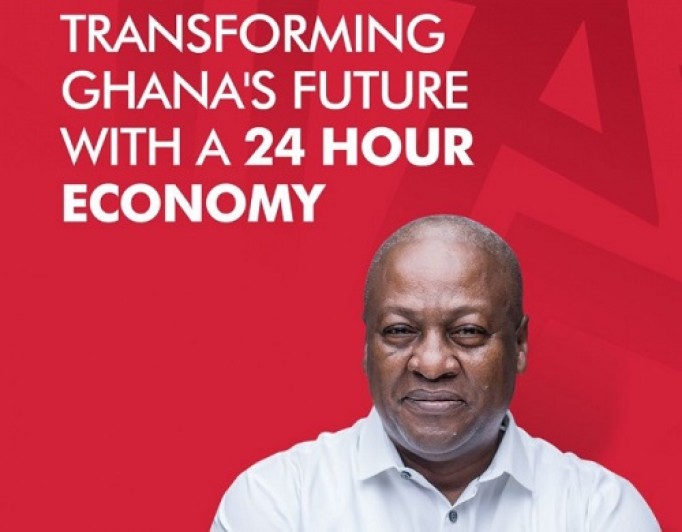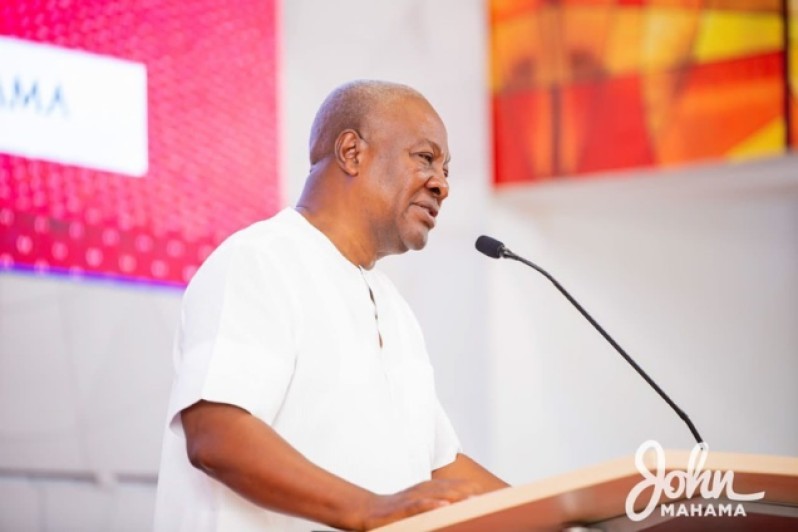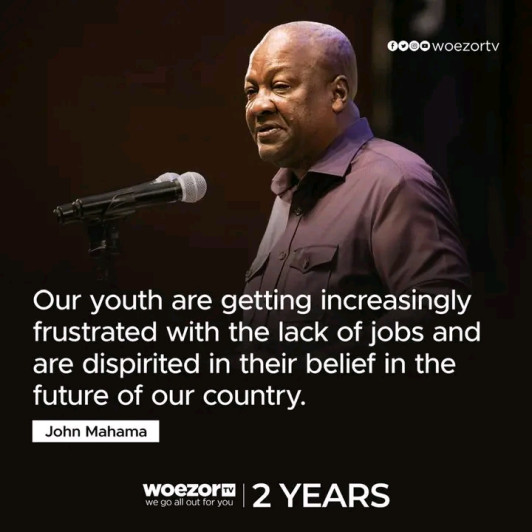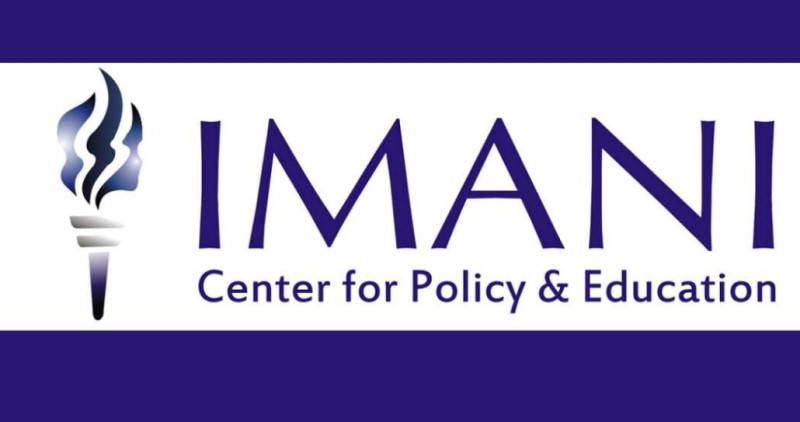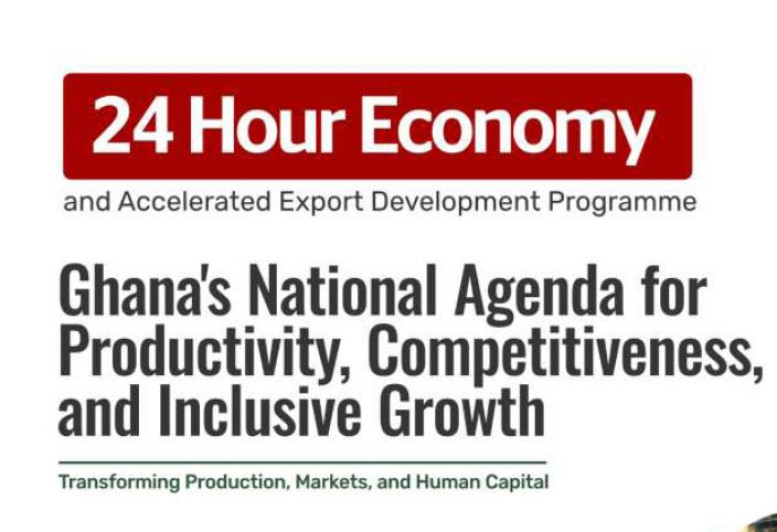
Restoration of Students’ Hope Through The 24-Hour Economy Policy: TEIN KNUST
Ladies and gentlemen of the press, members of the student body, and distinguished guests, thank you for joining us today.
I stand before you today as the President of TEIN KNUST to address a matter of utmost importance - the restoration of students' hope through John Mahama's 24-hour economy.
The mismanagement of the economy under the leadership of the Akufo Addo-Bawumia government has led to a ripple effect on various aspects of life of Ghanaians, particularly for students. Residential fees have surged by over 100%, burdening off-campus students with increased electricity costs due to recent tariff hikes.
I paid Ghc1,002 for hall in my first year but freshers are paying over Ghc 2,000 for halls this year. The Ghana Private Road Transport Union (GPRTU) has also declared a 60% increment in transport fares, adding to the financial strain.
Additionally, rising food prices and yearly hikes in hostel fees contribute to the overall difficulties of students. The stark comparison from the initial cost of a sachet of water at 20 pesewas when I was in first year to the current price of 50 pesewas highlights the challenging economic conditions students face, making life increasingly unbearable for us.
Students are facing these harsh conditions as they return to school. The policies of the NPP government have put undue financial strain on students and their parents, making it increasingly difficult for them to access education, not to talk of quality education. For the first time in the history of KNUST, students are resorting to perching bed space with friends in hostels more than any previous year, due to the economic hardships imposed by the government.
The increase in transportation costs has made it harder for students to travel from their homes to school and commuting from their hostels to campus and vice versa, adding an extra burden to their already tight budgets because of the economic hardship.
Additionally, the domestic debt exchange program has directly affected parents and their businesses, leading to financial hardships for many families. The imposition of huge taxes, such as the E-levy, has further exacerbated the financial burden on students and their parents.
It is unfair that female students are subjected to TEIN-KNUST taxes on sanitary pads, a basic necessity for women. Menstruation is a natural process and should not be a source of monetary gain for the government.
Furthermore, students are being taxed on electricity in their hostels and Covid taxes which students are not exempted despite not receiving any salary. This relentless taxation system has drained the pockets of our parents dry, threatening the very backbone that students depend on. The congestion of the unemployed youths obscuring hope for the future is also a cause for concern.
The lack of job opportunities for graduates is a direct result of the government's policies, leaving many young people without a clear path forward. In light of these challenges, we call on the government to reconsider their policies and take into account the real impact on students and their families.
Education is a fundamental right, and it should not be made inaccessible due to financial hardships caused by government policies. It is no secret that the current NPP government has imposed a freeze on employment, leaving many young graduates in a state of uncertainty and despair. The Finance Minister's assertion that the payroll is full and graduates should create their own jobs only means one thing; that is, the NPP government has no alternatives to create jobs for graduates.
This is not only disheartening but also unrealistic. The lack of capital and resources makes it nearly impossible for young graduates to embark on entrepreneurial ventures, thus rendering the 24-hour economy a potential game changer in their destiny.
Two of the many questions that students wish to ask the President, his Vice, the Finance Minister and the Minister for Trade and Industry are;
1. How did the government end up spending 21 billion Ghana cedis in collapsing banks that required a mere 9 billion Ghana cedis in liquidity support to sustain their operations?
2. How does freezing employment correspond to a measure taken to repay the IMF debt when said condition was not even a stringent requirement in the loan agreement?
The need for a change in government has never been more apparent. The NDC stands as the only viable alternative to lift the freeze on employment and provide young graduates with the opportunities they deserve.
Therefore, I call on the entire students body to support John Mahama's vision for a 24-hour economy which holds the promise of creating a conducive environment for job creation, innovation, and economic growth, thereby restoring hope for our students and the youth at large.
The 24-hour Economy will be a deliberate policy intervention by the next NDC/Mahama government to encourage and support certain businesses and companies to operate 24/7, preferably in a three-shift system of 8 hours each, by creating an enabling environment that promotes productivity, competitiveness, and well-paying jobs.
If a single position in a firm is occupied by one employee, extending production hours out to 24 will require recruitment of multiple employees making 3 employees occupying a single position and each operating 8 hours. With questions of; will salary be reduced or divided among the 3 employees?
How can we meet demand and what happens if supply exceeds demand; first, salaries will not be reduced or divided because increasing production hours increases productivity resulting in profit income, and operating with tax incentives saves a lot for the company to have enough money to pay workers.
The increased production hours will allow more goods and services to be produced no doubt, and the surplus will be exported. The 24-hour economy policy will be a major boost for John Mahama's import substitution and export drive.
This will stabilize our national currency, improve our reserves, bring down inflation and interest rates, create more employment opportunities, and improve livelihoods.
The 24-Hour Economy Policy will provide a platform for student entrepreneurs to cultivate and expand their businesses.
Again, it will afford students who engage in gainful employment or part-time jobs while in school the chance to earn income during non-academic hours, thereby mitigating the risk of missing lectures and enabling them to earn.
The youth are the future of every country but what do we see in the youth of Ghana? Students go through harsh conditions to get their degrees only to become unemployed. If need we are the future of this country, then opportunities must be created for us to show our creativity and innovations.
Therefore, we call upon all students and young people to join us in championing the cause of restoring hope through John Mahama's proposed 24-hour economy.
Together, let us strive towards a future where every graduate has the opportunity to fulfill their potential and contribute meaningfully to our nation's development.
Thank you
Download Full Press Release from here
www.24houreconomy.org
Disclaimer: "The views expressed on this site are those of the contributors or columnists, and do not necessarily reflect 24houreconomy.org’s position. 24houreconomy.org will not be responsible or liable for any inaccurate or incorrect statements in the contributions or columns here."
Share On Social Media
Other Stories
24-Hour economy policy a major improvement on past fragmented initiatives – IMANI Africa
1D1F programme cancelled, replaced with 24-Hour Economy – Minister
24-Hour Economy without cheaper power and credit is a mirage – GNCCI Boss
24-Hour Economy policy: Game-changer that needs flawless execution
The Fundamental Challenges to be addressed by the 24-Hour Economic Policy by the Government
Farmers should not worry about machines – Mahama on Agricultural Reforms
Akufo-Addo’s actions were so loud, Ghanaians couldn’t hear Bawumia’s policies- NPP MP
Mahama reiterates commitment to maintain opened door policy towards Minority parties
‘A difficult journey ahead’ – President-elect Mahama vows to rescue Ghana from the economic woes
24-HOUR ECONOMY
Economy


